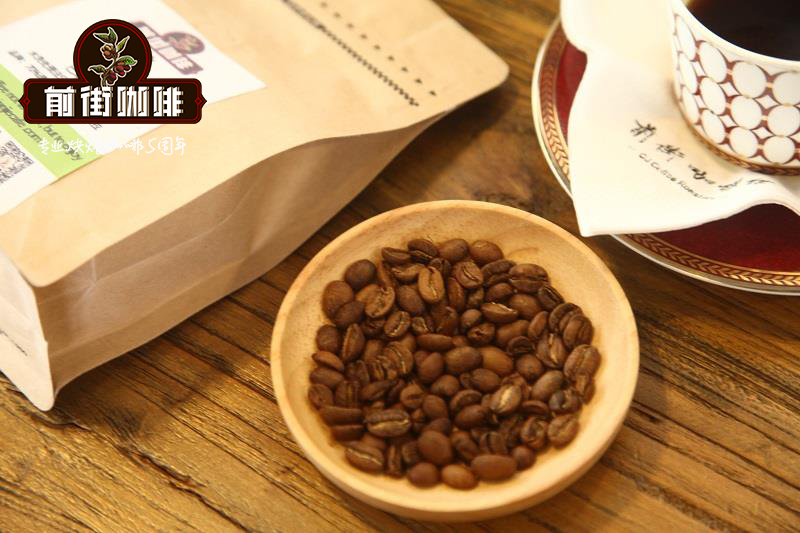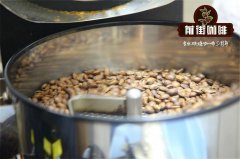How to describe the flavor of Gucci coffee beans _ Guji Timtu Coffee introduction _ what is the price of Gucci coffee beans

Professional coffee knowledge exchange more coffee bean information please follow the coffee workshop (Wechat official account cafe_style)
There are eight major coffee producing areas in Ethiopia: Ekempti, Limu, Illubabor, Djimma, Harrar, Teppi/Bebeka, Sidamo and Yirgacheffe.
Ethiopian coffee is highly rated in China, especially the Chinese people are particularly interested in and love the three famous producing areas of Ethiopia, namely Harrar, Sidamo and Yirgacheffe. The Sidamo producing area (Sidamo) is located in southern Ethiopia. The industry here is dominated by agriculture, and the coffee-growing area is located around the East African Great Rift Valley (Great Rift Valley). The largest town in Sidamo province is Hawassa, which is an important local coffee export distribution center. The coffee flavor of Sidamo is very diverse, because of the different soil composition, regional microclimate and countless native coffee varieties, the coffee produced in each urban area has obvious differences and characteristics. Shakisso is located in the southern part of Guji and Oromia, adjacent to Sidamo and Gedeo. There are many mines in this area, which were used to mine gold in the early days, so there are many potholes in this coffee growing area, which makes it dangerous for people to walk between coffee growing areas. Shakiso is a unique producing area of Guji / Sidamori, even in West Dharma, which is a remote area away from most coffee producing areas, and another famous local product is gold. Miners, land, ethnicity and other factors also destabilized the region in 2006. As a result, the biggest problem facing the region now is that ─ needs manpower to maintain the growing area and harvest coffee. Local small farmers began growing organic coffee in 2001 and work closely with medium-sized coffee producers because they are familiar with how to grow forest coffee in the highlands.
In the Guji producing area of West Dharma, there are more than a dozen articles with a score of more than 92 on the Coffee Review website, and there are also several times with high scores of 94 and 95. The famous Ardi comes from the Guji producing area. The territory is covered by towering mountains, highlands, plateaus, valleys and plains, with diversified topography, fertile black soil (Vertisol), and a significant temperature difference between day and night, so that the local area has all the local conditions for producing high-quality high-quality coffee. Almost all the local coffee production sources belong to the form of individual small farmers, and when the production season comes, they pick the ripe red berries from their neighbors and send them to the processing plant. Place it on a well-ventilated African scaffolding to control the temperature and fermentation degree, remove the pulp and reduce the water content to between 11.5% and 12%, and then export through the bidding system of the ECX Ethiopia Commodity Exchange when the post-processing and static operations are completed.
Palate description: delicate berry aromas, sweet and sour blueberries, lemon and citrus, cherry chocolate cake in the middle and finish, sweet sherry.
36 aromas of coffee: Maple syrup, lemon and citrus, honey, cream, coffee flowers, caramel
Brand recommendation of Guji Coffee beans
Qianjie Coffee roasted Gucci Coffee beans-Humbera Huakui 2.0 Coffee beans are fully guaranteed in terms of brand and quality. And more importantly, the performance-to-price ratio is extremely high, each pack of 227 grams, the price is only about 98 yuan. According to the calculation of 15 grams of coffee beans per cup of coffee, a bag of coffee can make 15 cups of coffee, which costs only about 6 yuan per cup, which is recommended by conscience compared to the price of tens of yuan a cup sold in a coffee shop.
Qianjie coffee: Guangzhou bakery, the store is small but a variety of beans, you can find a variety of unknown beans, but also provide online store services. Https://shop104210103.taobao.com
Important Notice :
前街咖啡 FrontStreet Coffee has moved to new addredd:
FrontStreet Coffee Address: 315,Donghua East Road,GuangZhou
Tel:020 38364473
- Prev

How to describe the flavor of Guji coffee beans_Guji coffee production characteristics_Guji coffee bean price comparison
Professional coffee knowledge exchange More coffee bean information Please pay attention to coffee workshop (Weixin Official Accounts cafe_style) Guji coffee producing area in southern Ethiopia is adjacent to Sidamo and Gedeo districts, with towering mountains, highlands, plateaus, valleys and plains, with diversified terrain. The geology of this area belongs to nutrient fertility and good drainage.
- Next

The planting situation of Gucci Coffee beans _ guji Hero Coffee beans are good? how many packets of Gucci Coffee beans
Professional coffee knowledge exchange more coffee bean information please pay attention to the coffee workshop (Wechat official account cafe_style) Ethiopia (Ethiopia) is one of the world's most well-known coffee producers, but also the birthplace of coffee, there are countless local native species, known as the genetic database of coffee. And this coffee is from the Sidamo region (Sidamo Zone)
Related
- Detailed explanation of Jadeite planting Land in Panamanian Jadeite Manor introduction to the grading system of Jadeite competitive bidding, Red bid, Green bid and Rose Summer
- Story of Coffee planting in Brenka region of Costa Rica Stonehenge Manor anaerobic heavy honey treatment of flavor mouth
- What's on the barrel of Blue Mountain Coffee beans?
- Can American coffee also pull flowers? How to use hot American style to pull out a good-looking pattern?
- Can you make a cold extract with coffee beans? What is the right proportion for cold-extracted coffee formula?
- Indonesian PWN Gold Mandrine Coffee Origin Features Flavor How to Chong? Mandolin coffee is American.
- A brief introduction to the flavor characteristics of Brazilian yellow bourbon coffee beans
- What is the effect of different water quality on the flavor of cold-extracted coffee? What kind of water is best for brewing coffee?
- Why do you think of Rose Summer whenever you mention Panamanian coffee?
- Introduction to the characteristics of authentic blue mountain coffee bean producing areas? What is the CIB Coffee Authority in Jamaica?

